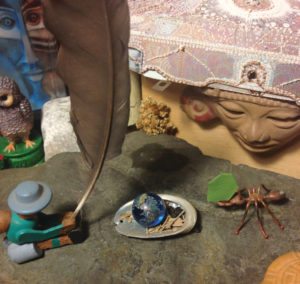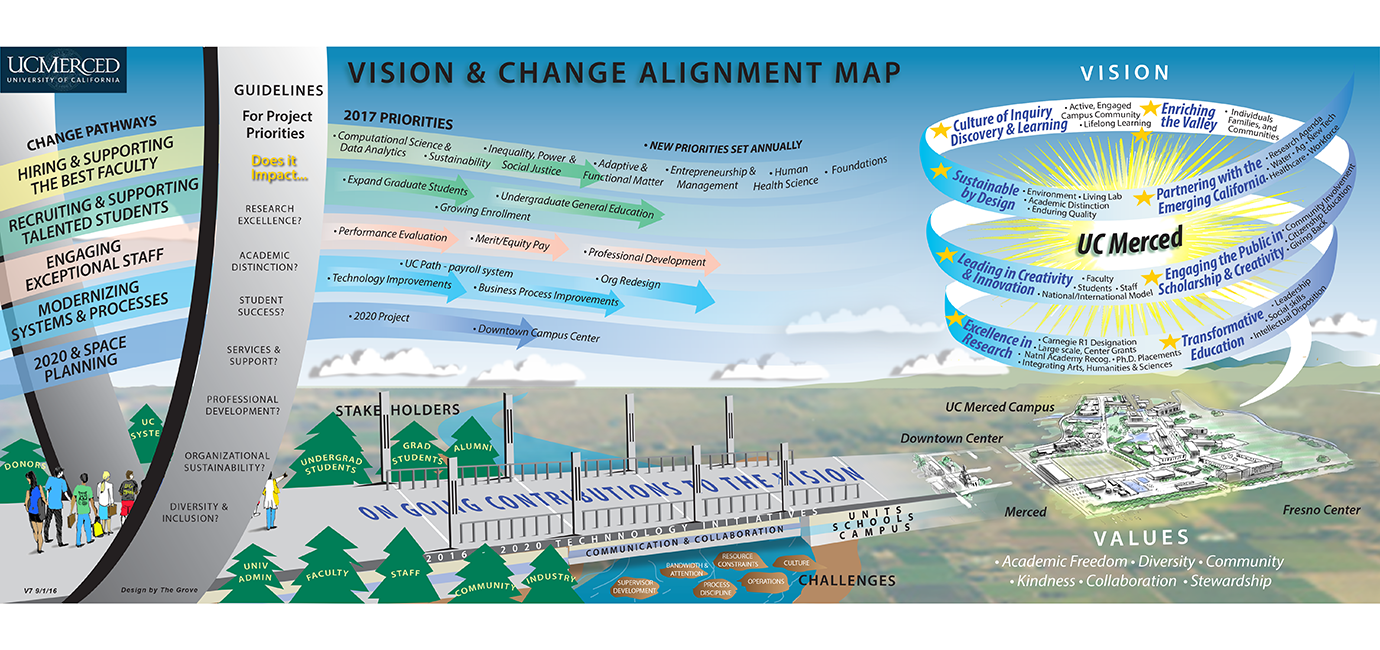Stepping Up to Big Questions
I’m on my way to Germany with Gisela Wendling, The Grove’s Director of Global Learning, to conduct a new kind of workshop for me and The Grove. Called a Visual Interventions LAB, it is moving into the space long held by the National Training LABS that have been so instrumental in developing the professional field of organizational development.
A LAB isn’t a training in skill and content, but a deep inquiry and exploration, where the group process and its knowledge is the primary content. We came up with some big questions that will drive our inquiry.

Gisela and I decided on these questions in collaboration with Holger Scholtz, the leader of Kommunikationslotsen (community navigators), a process consulting firm in Germany about the size of The Grove. It has been introducing circle dialogue work, Open Space, World Café, large-scale change, AND visual facilitation to its clients. We met at the EuViz conference this summer, which they co-hosted with Neuland, a German training and consulting tools manufacturer, and the International Forum of Visual Practitioners (the 19 year-old association of visual recorders and graphic facilitators of which I am a part).
Holger is an exceptional thinker and really pushed Gisela and me to go out to the edges of our own thinking. These are the questions that we will be asking. I’ll post more later, but meanwhile I invite you to spend a bit of time just letting these questions roll around in your consciousness. They certainly have been in mine.
The Power of Imagery
- What are the generative images of our time?
- If Carl Jung says “images are the language of the soul,” then what are we doing when we intervene in the visual imagination of groups?
- Are there ethical implications of challenging people’s core imagery and worldviews?
Shifting Paradigms
- If we believe a paradigm of connectivity and inter-being is essential to our survival, where are we collectively and personally in a shift toward this paradigm?
- How can we support others letting go of images and models that are no longer adequate?
- How do we get beyond our own “trick boxes” to what is really needed?
Process as Ceremony
- How can we move through the doorways of visual thinking and imagery to a deep feeling of interconnectedness?
- Can ceremonial practices support us today to access and embody images of wholeness?
- How can we support each other in working more deeply?
I’m personally struck by how powerful these questions seem to me this year, following the big changes I’ve been going through with the loss of my wife Susan, after 46 years. In a recent meeting at The Grove talking about what kinds of things we want to support Allen Briskin, shared an e-mail he got from Tom Hurley, another friend and unusually thoughtful man. It’s so parallel I felt it worth sharing here in this context. Perhaps something is arising…
“One lesson from the global quest for new ways to organize is that artful group processes, skillful project designs, elegant organizational structures, and inspiring management philosophies are important in enabling change – and insufficient.
By themselves they do not enable us to be ever more courageous in our aspirations, conscious and caring in our relationships, and innovative in our pursuit of purpose. Success in those areas is ultimately a function of what we as individuals actually do, and particularly of the spirit in which we bring ourselves to the encounter with others and our own depths. It has more to do with intention, attention, and intangible qualities of soul than with any intervention, methodology, technique, or structure.
Most fundamentally, it involves the individual and collective choices we make about how to relate to the possibilities present in our immediate experience as we grapple with the issues, emotions, and tests that life and work bring us in each moment.” Thomas J Hurley
WOW! Thanks Tom; thanks Gisela and Holger. As we move to live through what some are calling “the great unraveling”, these orientations will be important.


No Comments